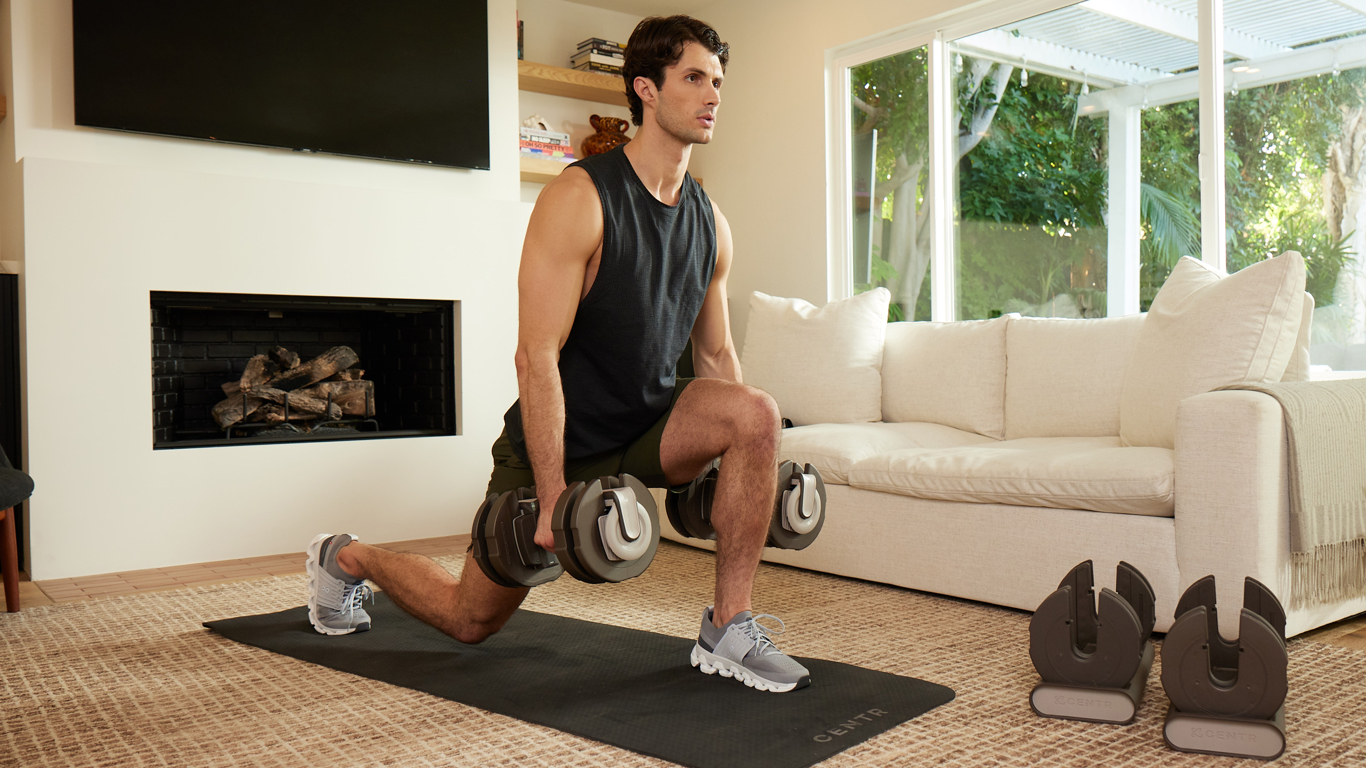The right supplements can significantly support your leg recovery and growth, leading to better performance and less downtime. Including key nutrients such as protein, amino acids, and vitamins can enhance muscle repair and promote growth after strenuous workouts. With so many options available, knowing which supplements truly make a difference is important for optimizing your routine.
Finding effective supplements tailored for leg recovery means considering both your training intensity and dietary needs. Focus on substances that aid in reducing soreness and improving healing time. You’ll also want to explore how certain vitamins and minerals play a role not just in recovery, but in overall performance.
In this article, you’ll discover the top supplements that can help you bounce back faster and build stronger legs. You’ll be empowered to make informed decisions that align with your fitness goals.
Key Takeaways
- Targeted supplements help in muscle recovery and enhance growth.
- Proper nutrition plays a crucial role in maximizing athletic performance.
- Understanding your unique needs will guide your supplementation choices.
Understanding Muscle Recovery and Growth
Muscle recovery and growth are vital for improving your fitness and overall performance. Proper knowledge of how protein aids recovery and how resistance training supports muscle synthesis can help you maximize your workouts.
The Role of Protein in Muscle Repair
Protein is a key component in repairing muscle damage. After intense exercise, your muscles experience tiny tears, and protein is necessary for rebuilding them. Consuming protein provides the amino acids needed for muscle protein synthesis.
Aim for a protein intake that fits your activity level. For most people, consuming 1.2 to 2.2 grams of protein per kilogram of body weight is ideal. High-quality sources include:
- Chicken
- Fish
- Eggs
- Dairy products
- Legumes
Timing matters too. Consuming protein-rich meals or supplements after workouts can boost recovery. This helps you reduce muscle soreness and enhances your ability to perform in future sessions.
Benefits of Resistance Training on Muscle Synthesis
Resistance training plays a significant role in promoting muscle growth and strength. It increases muscle mass by challenging your muscles beyond their normal limits. This leads to muscle damage, which, when repaired, results in stronger muscles.
Incorporating various forms of resistance training, like weightlifting or using resistance bands, stimulates muscle protein synthesis. This is enhanced by progressively increasing the weights or resistance. Consider focusing on major muscle groups, especially your legs, to achieve optimal results.
Regular resistance training can counteract aging-related muscle loss, helping you maintain strength as you grow older. Aim for at least two days a week focused on resistance exercises for effective muscle growth and recovery.
Essential Supplements for Enhanced Recovery
Proper recovery is crucial for your leg workouts and overall performance. Certain supplements can support muscle recovery, reduce soreness, and enhance strength. Below are key supplements that can help in your recovery journey.
Creatine Supplements for Energy and Strength
Creatine is a popular supplement known for boosting energy during workouts. It helps replenish ATP, the primary energy carrier in your muscles. By increasing the levels of stored creatine phosphate, it allows you to perform high-intensity exercises more effectively.
Types of Creatine:
- Creatine Monohydrate: The most studied form and effective for muscle enhancement.
- Creatine Ethyl Ester: Claims faster absorption but less research to support this.
An effective dose is about 3-5 grams per day. Regular use can improve muscle strength and decrease muscle soreness after intense workouts. This ultimately aids your recovery process, getting you ready for your next workout sooner.
Amino Acids: BCAAs and Their Importance
Branched-Chain Amino Acids (BCAAs) are essential for muscle growth and recovery. BCAAs include leucine, isoleucine, and valine, which play a key role in protein synthesis.
Benefits of BCAAs:
- Reduced Muscle Soreness: They can help decrease muscle damage and soreness post-exercise.
- Enhanced Muscle Recovery: BCAAs promote faster recovery times by improving muscle repair.
A common recommended dose is 5-10 grams before or after workouts. Including BCAAs in your supplement routine can significantly benefit your recovery and overall leg performance.
The Effectiveness of Recovery Supplements
Recovery supplements often combine various ingredients to optimize your recovery. These may include protein, amino acids, and other nutrients like L-glutamine and electrolytes.
Key Ingredients:
- Protein: Essential for muscle repair. Aim for 20-30 grams post-workout.
- L-Glutamine: Supports muscle recovery and immune function.
- Electrolytes: Help maintain hydration and support muscle function.
The effectiveness of these supplements can vary based on individual needs and workout intensity. Choosing the right mix can enhance your recovery experience, allowing you to train harder and longer.


Optimizing Muscle Growth Through Proper Supplementation
To promote muscle growth effectively, choosing the right supplements is essential. Protein powders and additional supplements can help you reach your goals faster and support recovery.
Protein Powders: Whey, Casein, and Plant-Based Options
Protein powders are crucial for muscle recovery and growth. Whey protein is popular because it’s quickly absorbed, making it ideal for post-workout intake. A typical serving provides around 20-30 grams of protein, helping to stimulate muscle protein synthesis.
Casein protein digests more slowly, providing a steady release of amino acids. It’s best taken before bed to support overnight muscle recovery.
For those preferring plant-based options, pea, hemp, and rice proteins are great alternatives. While they may not have as high a complete amino acid profile as whey or casein, combining different sources can ensure you get all essential amino acids. Aiming for 1.2 to 2.0 grams of protein per kilogram of body weight can maximize muscle gains.
Additional Supplements for Maximum Muscle Gain
Beyond protein, other dietary supplements can enhance muscle growth. Creatine is one of the most researched supplements, known to increase strength and muscle mass. Taking about 3-5 grams daily can improve performance.
Branched-Chain Amino Acids (BCAAs), including leucine, isoleucine, and valine, play a significant role in muscle recovery. Supplementing with 5-10 grams before or after workouts may reduce muscle soreness.
Testosterone boosters can also be beneficial, especially if your levels are low. These often include ingredients like fenugreek or zinc. Eating protein-rich foods, like chicken and beans, along with supplements can further enhance your diet for better muscle gain.
Supplements Beyond Muscle: Total Athletic Performance
Athletic performance is not just about building muscle. Certain supplements can enhance your endurance, support recovery, and improve overall strength during workouts. Focusing on the right nutrients can make a significant difference in your training results.
Enhancing Endurance and Strength with Beta-Alanine
Beta-Alanine is an important supplement that can help reduce muscle fatigue, especially during high-intensity exercises. It works by raising carnosine levels in your muscles, which helps buffer acid produced during exercise. This can improve performance and allow for longer training sessions.
Adding taurine can also complement beta-alanine. Taurine helps maintain hydration and supports muscle function. Together, these two supplements can enhance both endurance and strength.
Consider consuming beta-alanine in doses of 2 to 5 grams per day. This helps maximize benefits during your exercise program. Combine this with a well-balanced diet to fuel your body with necessary calories for recovery.
Omega-3s and Other Nutrients for Comprehensive Support
Omega-3 fatty acids are crucial for athletes seeking comprehensive support. They help reduce inflammation, supporting faster recovery after workouts. Foods rich in omega-3s include fish, flaxseeds, and walnuts, or you can choose a high-quality fish oil supplement.
In addition to omega-3s, consider a daily multivitamin. It can provide important nutrients like magnesium, which plays a role in muscle function and energy production. A well-rounded multivitamin can help prevent any deficiencies that might hinder your athletic performance.
Including corosolic acid in your regimen may also offer benefits. This compound has been researched for its potential to support blood sugar regulation, which is important for sustained energy levels during workouts. By focusing on these nutrients, you promote better overall performance and recovery.
Additional Considerations for Effective Supplementation
When considering supplements for leg recovery and growth, it’s important to think about both the cost and quality. Additionally, understanding the testing processes for these supplements can help ensure safety and effectiveness in your routine.
Balancing Cost and Quality in Supplements
Finding the right balance between cost and quality is essential when selecting supplements. High-quality products often come with a higher price tag. However, cheaper options might not provide the necessary ingredients or dosages for effective muscle recovery and growth.
For instance, products like Transparent Labs Sleep Aid might be more expensive but offer detailed ingredient lists and proven effectiveness. In contrast, generic brands could contain fillers, reducing their overall effectiveness. Pay attention to solubility and taste, as these factors can affect your willingness to consistently use a supplement.
Always check for products with transparent labeling. Look for supplements with a proven track record, like Legion Recharge and XWerks Grow, that justify their cost through quality and results.
Understanding Third-Party Testing and Supplement Safety
Third-party testing is crucial for ensuring the safety and reliability of supplements. This process involves an independent organization evaluating the product’s contents to confirm they match what is on the label.
When choosing a supplement, look for certifications from trusted third-party labs. This helps assure you that the product is free from harmful contaminants and has the claimed nutritional profile.
Understanding testing methodologies can help you make informed choices. Some companies prioritize rigorous testing protocols and disclose their results publicly. This transparency builds trust in brands like Legion Recharge and XWerks Grow, making them safer options for your leg recovery and growth goals.


Frequently Asked Questions
This section addresses common questions about supplements that can help with leg recovery and growth. You will find information about effective ingredients, natural options, and essential nutrients for muscle recovery.
What are the most effective supplements for reducing muscle fatigue and soreness after workouts?
Creatine monohydrate is widely recognized for helping reduce muscle fatigue and soreness. It replenishes ATP, which supports energy recovery in muscles. Branched-chain amino acids (BCAAs) can also help minimize soreness by reducing muscle damage during workouts.
Which supplements are recommended for enhancing muscle and joint recovery post-exercise?
Whey protein and casein protein are both effective for muscle recovery. They provide the necessary amino acids to rebuild muscle tissue. Glucosamine and chondroitin are often used to support joint recovery and help reduce stiffness after exercise.
Are there any proven benefits of muscle recovery supplements, and how do they work?
Muscle recovery supplements can aid in faster recovery by supplying essential nutrients. They work by decreasing muscle inflammation, reducing muscle damage, and supporting muscle protein synthesis. Regular use can lead to improved performance and less soreness.
Can natural supplements aid in muscle recovery, and what are some examples?
Yes, natural supplements can support muscle recovery. Examples include tart cherry juice, which may reduce muscle soreness, and turmeric, known for its anti-inflammatory properties. Magnesium from food sources like nuts can also help with muscle relaxation and recovery.
What vitamins or nutrients are essential for combating muscle weakness?
Vitamin D and calcium are key for muscle function and strength. B vitamins, particularly B6 and B12, support energy metabolism. Omega-3 fatty acids can also help reduce inflammation and promote muscle recovery.
What are some of the best post-workout supplements to assist with weight loss?
Protein powders, particularly whey, can aid in muscle recovery while supporting weight loss. L-carnitine is another supplement that may help your body use fat for energy. Green tea extract is often used for its potential metabolism-boosting properties.





